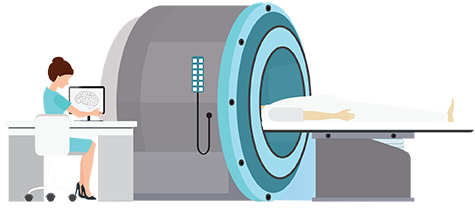

Medical imaging professionals are in high demand, as the population across the country is aging and the proportion of the older generation is becoming greater. This is creating additional demand in the health care industry, specifically for radiology workers — and Michigan is no exception.
If you are thinking of starting a career in radiology, we’ve compiled a list of schools in Michigan offering radiology and related health care programs. You can request information directly from the schools at the bottom of this page to learn more about individual programs offered. For details on specific careers in the field, check out the links below:
To become a radiology worker in Michigan, you need both a college degree and state licensure. Below are the basic steps to becoming a radiologic technologist in Michigan:
The table below lists the mean annual salaries for several radiology careers in Michigan. Please note that wages will vary depending on training, experience, and other factors.
| Career | Total Employment | Annual Mean Wage |
|---|---|---|
| Cardiovascular Technologists and Technicians | 2,470 | 56,640 |
| Diagnostic Medical Sonographers | 2,510 | 60,410 |
| Magnetic Resonance Imaging Technologists | 1,640 | 61,500 |
| Nuclear Medicine Technologists | 670 | 67,980 |
| Radiologic Technologists | 6,390 | 53,880 |